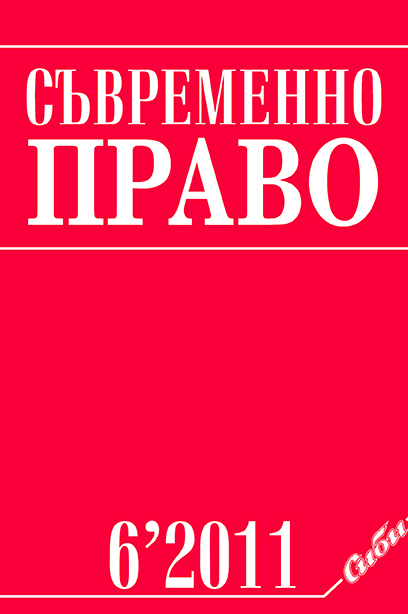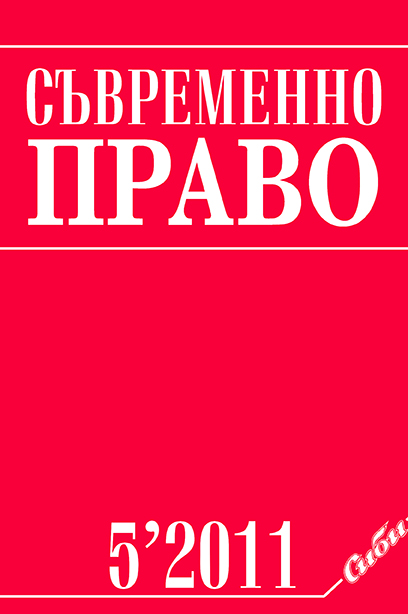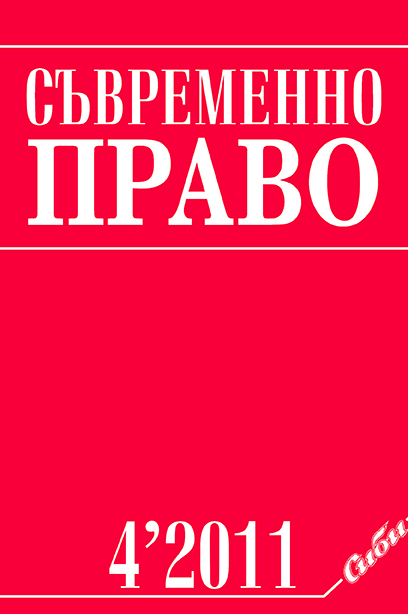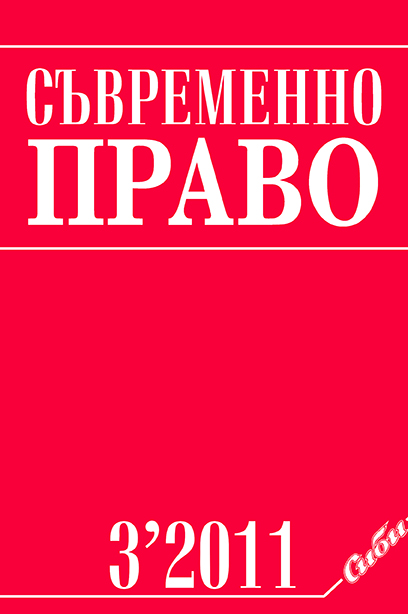
Понятието държава и легитимирането на правния ред
In the present article the author aims at analyzing the main historically developed ideas, which claim to give an acceptable justification to the legal order. According to the author, these are Cosmos, God, the human reason and the state. The notion of the state is no longer able to insure the main justification of the legal order. The open nature of today’s legal systems requires a new fundamental concept, which would be able to provide a new basis for the justification of the legal order. That should be a concept combining arguments for the legal validity of the legal order with arguments for its legitimacy.
More...


